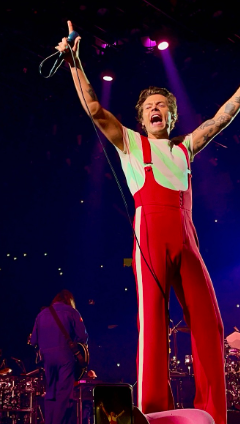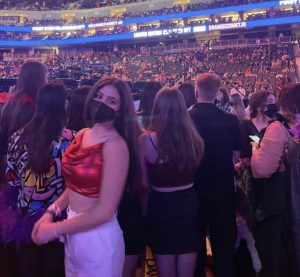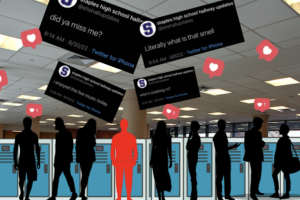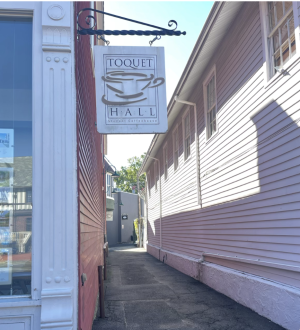Post-concert depression is real, the worst.

Harry Styles interacting with the crowd at Madison Square Garden while singing Adore You.
There is no feeling like the end of a concert. Everyone files out of the arena, and you see everyone’s belongings left behind. The luminescent lights shut off, the chatter of the crowds dwindle, and everything is left dark and silent.
The feeling of being surrounded by people who feel the same way you do is an electric sensation. Connecting with the people that share the same love you have for an artist that saved your life, or made everything feel ok makes you feel so deeply understood.
Fans can look in any direction, and see other people singing the same lyrics with heart and passion. We pay to see this artist, we buy their work and we wear their merch. That sensation of hearing the same songs live that we listen to late at night is the best feeling in the entire world.
But when the concerts end, that’s when the classic post-concert depression starts.
Phase one: UNFULFILLMENT
When a concert ends, I fall asleep with the rush of the night pumping through my veins, but upon waking up the next morning, I am filled with a new feeling of dread from the adrenaline disappearing.
Phase two: RECOVERY
When I find myself longing for a concert, I listen to the same setlist, and look through my photos of the videos and photos of the concerts I attended. I look through social media for any clips of the concert, trying desperately to re-capture that beautiful moment I had experienced.
I recently went to night five of Harry Styles Love on Tour concert at Madison Square Garden in Manhattan, New York. After meeting Harry in 2014 and listening to his previous band, One Direction, I was so excited about his concert. I would regularly imagine how the night would be, and that built up anticipation about the show.
From the moment he entered the stage to the moment he stepped off, the rush I felt was like a fever dream; I felt revitalized. When he left the stage, like any rabid music fan, the grieving process started. I realized that the next time I’ll experience something like that won’t be for months, and returning back to every-day life seemed even worse. Eventually life went back to normal, but recollections of that night still linger in my mind often.
To get over post-concert depression is to realize that the rarity of those moments are what makes them special. Concerts are only special because they contradict the boring days; we should appreciate the fact that concerts are so rare. The days that are mundane or lack excitement only build up the anticipation for the next concert.
After my experience at the Harry Styles concert, I’ve come to the conclusion that post-concert depression is a blessing and a curse. It is a curse because I know that experiencing a concert regularly is unattainable; only the music artist is fortunate enough to experience the highs of a concert every night. But post-concert depression is also a blessing because when I walk away from that arena, I know I am walking away with the gift of amazing memories that will sustain me until the next concert experience.

Business Manager Caroline Zajac ’25 knows budgeting. Whether it's her time split between school and rowing or the funds for Inklings News, Zajac ensures...



















































